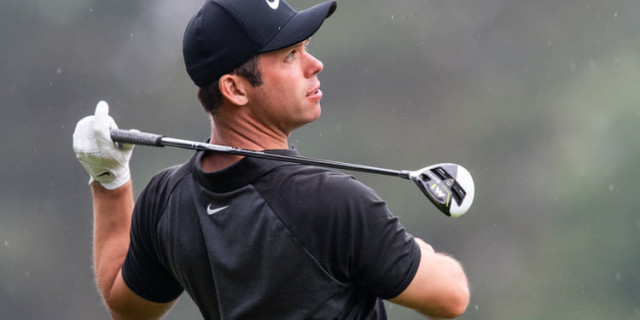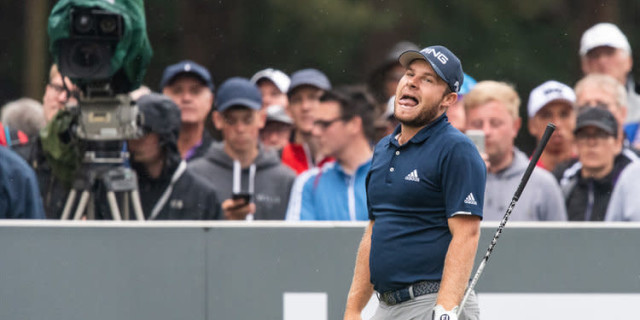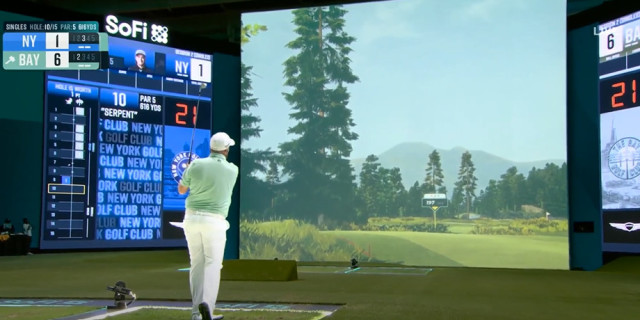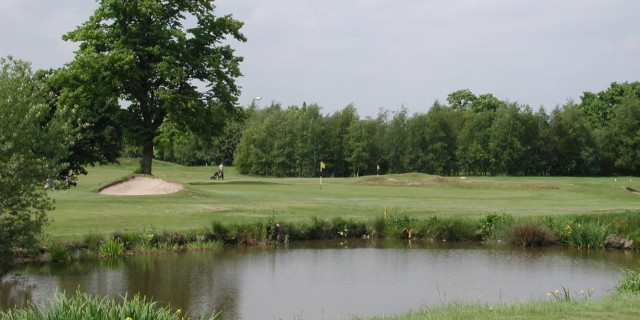
Why Geography Holds Back English Golfers in Majors
It is a harrowing exercise to try and recall Englishmen who have won majors in the last 20 years. There was Justin Rose at Merion in 2013 and Danny Willett won the Masters in 2016. Other than that though, it’s been slim pickings. There was Lee…Hmm, actually, no there wasn’t. Then, Paul Casey – Luke Donald had a run didn’t he? No. This century, I’m afraid, English victories in golf’s most illustrious events have been in short supply.
And yet, herein lies a conundrum because it’s not as though English golfers are bad. Certainly, we have no difficulty winning other events. Take the example of Lee Westwood, he doesn’t jab under the gun in normal tour events and he has over 40 wins worldwide. He was even world number one for a while. So plainly English golfers are talented enough to win majors. It’s just for some inexplicable reason the wins have eluded them.
Inexplicable… Perhaps. But there is another explanation. I put it to you that it’s not a lack of bottle. It’s not a lack of distance. It’s not frail putting strokes – well, okay it is a bit of this – or flaws of psychology that have held English players back from the major successes that they seem to deserve. No, the real bane of English triumphs, the turd in the punchbowl, the wasp in the bum balm is geography.
I made the first line of my case in an article earlier this year, in which I argued for the desirability of a world golf league. ‘Pourquoi?’ I hear you ask. Why – respectable golf commentator that I am – would I throw away my credibility by supporting a league muddled with potentially – read: almost definitely, and that ‘almost’ is only there for legal reasons – tainted Saudi money. I don’t get my kicks from cheerleading corrupt regimes, so why side with the anti-Christ? Simple: I thought it could break up the major’s skewed geography.
Because, in case you haven’t noticed, the spread of golf’s majors is skewed. And badly. The United States claims three out of the four major championships on its soil, while we Brits are only allowed to have one. And that – to my mind – lies behind the failure of our golfers to claim more of golf’s biggest prizes. Simply put: we’re the victims of a yank major monopoly. Uncle Sam has the silver pooch and the unnecessarily oversized hat. They have Park Lane. We have Old Kent Road.

(Paul Casey Finished 2nd at the 2020 PGA Championship)
You can see what a stark effect this has on the major hopes of our players by probing a little deeper into the differences between American and British tracks. There’s no need for complex considerations. There’s a very simple reason why English players have lagged, by and large, in golf’s biggest competitions and it’s this: they’re all in the US, where the set-up of courses is starkly different. Alien too is the style of play which they demand to conquer them. In fact, even the grass that lines the greens could not be more divergent from UK conditions. Players hone their golfing DNA when young. English players are fundamentally not suited to bomb and gouge parkland golf. Compare the moonballs of Augusta National with the low worm-botherers of Royal Liverpool.
That’s the gist of what I think about this at least. But there is another layer to the story. A friend who I tried out this argument on during a recent Covid-cautious trip to our much-honoured local stumped me with this zinger: ‘okay, so if geography is all there is to it, all there is to Brits’ failures to make good in the majors, then why have 12 different Americans won the Open Championship in the 28 years since Nick Faldo last won for England?’ (He’s a learned chap.) I admit it: I was unhorsed. I’m tempted to plead coincidence. But I won’t.
Instead, I started thinking. And I’m willing to admit that while I still very much disapprove of the yank-centric nature of our major calendar, there probably are a few more considerations that ought to be factored in, other elements that support the lop-sided major calendar, other aspects that keep our players down.

(Tyrrell Hatton - One of England's Brightest Hopes)
Culture is the big one to my mind. Specifically, we need to take a look at the differences between amateur golf in the UK and amateur golf in the US, which is mostly ruled by ‘colleges’ (our universities). Well, there’s no equivalent to this in England. Lindfield Golf College is the nearest thing we have to this experience, and that isn’t really comparable at all. In turn, this means that English golfers are missing out on competing at the very highest pinnacles of unpaid competition as the tippy-top amateur golfers knocking around the UK are simply not as good as their American equivalents. It is the truth, sadly. If you want proof of this, look to the Walker Cup in which Great Britain and Ireland is routinely dominated. The result of this is that English golfers miss out on the pressure of the very harshest amateur competition – they’re being shaped in a crucible that’s on only part flame.
Does this mean they’re softer when it comes to the back nines of majors? I think it’s a factor.
Then there is distance. Surely another reason why Americans have proved more versatile than English golfers. Think of the archetypal American player. You’re thinking of the long-bombing Dustin Johnson, aren’t you? And now think of the archetypal English player. If you’re like me, your mind will have run to Luke Donald, or maybe Lee Westwood. So, here’s the kicker: neither of these players is long. Just one English golfer is in the top 10 of the PGA Tour’s driving distance (and that’s relative unknown Paul Waring). England is poorly represented at the head of the board. The performance of Luke Donald, whose 290-yard bashes put him in the bottom third of players on tour, is not an anomaly, even if we allow that Americans outnumber English players in the stats. Thus, distance has to be acknowledged as another key factor.

(Two-time Major Runner-up Tommy Fleetwood)
But I can’t help returning to geography. Because even if we think that it really isn’t too unreasonable to ask English players to fight against generations of conditioning to punt it low and avoid flop shots, we can still recognise a moral argument, that the American domination of the major calendar is just wrong. I’m not suggesting we necessarily embrace the recently proposed world golf league, but if we want a more ethical sport, a more level playing field, there is surely no debate that we need to create more equality in golf’s major’s geography. And if we just want to see the St George’s Cross rippling high over more championships, well, it will hardly be anathema to that, too.

Be part of the action with a selection of unique golf tournament experiences, from playing in a pro-am with the stars to watching the action at golf’s most illustrious events. Whether it’s the Masters or The Open, The Ryder Cup or WM Phoenix Open, build your own bespoke package with the experts at Golfbreaks.com.
Tags: PGA Tour FedEx Cup european tour









